- Home
- Sarah Woodbury
Cold My Heart: A Novel of King Arthur
Cold My Heart: A Novel of King Arthur Read online
Cold My Heart: A Novel of King Arthur
Title Page
Chapter One
Chapter Two
Chapter Three
Chapter Four
Chapter Five
Chapter Six
Chapter Seven
Chapter Eight
Chapter Nine
Chapter Ten
Chapter Eleven
Chapter Twelve
Chapter Thirteen
Chapter Fifteen
Chapter Twenty
Chapter Twenty-One
Chapter Twenty-Two
Chapter Twenty-Three
Chapter Twenty-Four
Chapter Twenty-Five
Cold My Heart
A Novel of King Arthur
by
Sarah Woodbury
* * * * *
SMASHWORDS EDITION
Copyright 2011 by Sarah Woodbury
Smashwords Edition License Notes
This ebook is licensed for your personal enjoyment only. This ebook may not be re-sold or given away to other people. If you would like to share this book with another person, please purchase an additional copy for each person you share it with. If you're reading this book and did not purchase it, or it was not purchased for your use only, then you should return to Smashwords.com and purchase your own copy. Thank you for respecting the author's work.
* * * * *
* * * * *
A Brief Guide to Welsh Pronunciation
c a hard ‘c’ sound (Cadoc)
ch a non-English sound as in Scottish "ch" in "loch” (Fychan)
dd a buzzy ‘th’ sound, as in “there” (Dafydd)
f as in “of” (Dafydd)
ff as in “off” (Gruffydd)
g a hard ‘g’ sound, as in “gas” (Gruffydd)
l as in "lamp" (Llywelyn)
ll a breathy “th” sound that does not occur in English (Llywelyn)
rh a breathy mix between ‘r’ and ‘rh’ that does not occur in English (Rhys)
th a softer sound than for ‘dd,’ as in "thick” (Tathan)
u a short ‘ih’ sound, or a long ‘ee’ sound (Cymru—pronounced “kumree”)
w as a consonant, it’s an English ‘w’; as a vowel, an ‘oo’ sound (Llanrwst)
y the only letter in which Welsh is not phonetic. It can be an ‘ih’ sound, as in “Gwyn,” is often an “uh” sound, and at the end of the word is an “ee” sound (thus, both Cymru—the modern word for Wales—and Cymry—the word for Wales in the Middle Ages—are pronounced “kumree”)
* * * * *
Cast of Characters:
The Welsh
King Arthur ap Uther (born 480 AD)
Ambrosius—King of Wales (deceased 501 AD), uncle to Arthur
Geraint—Knight
Gawain—Knight, Gareth’s brother
Gareth—Knight, Gawain’s brother
Bedwyr—Knight, Arthur’s seneschal
Cai—Arthur’s half-brother
Myrddin—Knight (born 501 AD)
Nell—Myrddin’s friend (born 507 AD)
Dafydd—Archbishop of Wales
The Saxons
Modred—Arthur’s nephew (born 497 AD)
Cedric—Lord of Brecon
Edgar—Arthur’s nephew, Lord of Wigmore
Agravaine—Lord of Oswestry
Wulfere—Modred’s captain
* * * * *
(Translated from the Latin)
To Archbishop Dafydd:
We must speak of the evils wrought upon us by my nephew Modred and his Saxon allies, how the peace formerly made has been violated in all the clauses of the treaty, how churches have been fired and devastated, and ecclesiastical persons, priests, monks and nuns slaughtered, women slain with children at their breast, hospitals and other houses of religion burned, the Welsh murdered in their homes, in churches, yes at the very altar, with other sacrilegious offences horrible to hear . . ..
We fight because we are forced to fight and are left without any remedy . . . I do not ask for your blessing in these last endeavors. Only your understanding.
Arthur ap Uther,
King of Wales and Lord of Eryri
November, 537 A.D.
* * * * *
Chapter One
11 December 537 AD
“Get over here, Myrddin!”
I urged my horse across the clearing, through the ankle-deep snow and towards Gawain, the captain of my lord’s guard. He resembled a greyhound, whip-thin but muscled, his grey-streaked hair held away from his face by a leather tie at the nape of his neck.
“Sir,” I said.
Gawain pointed to a stand of pine trees some hundred yards away on the other side of the Cam River. “What do you see?”
At thirty-six, after a lifetime of soldiering, my eyes weren’t what they used to be. I stared anyway, trying to glimpse what Gawain had noticed. Christ! It can’t be! Cold settled into my belly. “The branches are moving.” I glanced at Gawain. “Didn’t our scouts check those trees?”
“Yes.” The word hissed through Gawain’s teeth. “They did. I saw to it myself.”
“The company must move now,” I said. “It isn’t safe here.” I forced myself to remain calm instead of shouting the words at Gawain as I wanted to.
“No, it isn’t,” Gawain said. “I said as much to the King before we began this journey.”
“Maybe he’ll listen now.”
“I’ll speak to him,” he said. “For your part, take four men—Ifan, Dai, two others. Clear out those trees. I don’t care how you do it.” He clapped a hand on my shoulder, punctuating the command.
“Yes, sir.”
I directed my horse towards the north, riding past the church, St. Cannen’s, that squatted in the middle of the clearing. An up-and-coming half-Saxon lord, Edgar, son of King Arthur’s youngest sister, had sent a letter asking to discuss the transfer of his allegiance from Modred to Arthur. That his overture was genuine had always seemed unlikely, yet Modred’s war had gone on so long that Arthur felt he had to grab any chance that came his way, on the hope that he could shift the balance of power in his favor. Recent victories had given us real hope that we might prevail, but if those trees held Saxon soldiers, then the King was going to die, along with all of his men. Including me. He’d walked into a trap from which none of us would escape.
“Ifan!” I waved my friend closer.
He spurred his horse to intersect mine. “What is it?”
“Mercians,” I said. “Possibly.”
Ifan, as pale as I was dark such that a man could mistake him for a Saxon, had campaigned beside King Arthur even longer than I. He didn’t ask for details. Once I’d collected several more men, we circled behind the church, heading for the ford of the River Cam on the northwestern edge of the church property. The trees along the river shielded us from the field beyond. Once across the Cam, however, we left their cover.
“Shields up,” I said—and just in time. An arrow slammed into Ifan’s shield and a second into mine.
“Back, back!” Ifan shouted, wheeling his horse to retreat down the riverbank. “We’ll have to go around!”
But before we’d ridden halfway across the river, a company of Saxon cavalry burst from the woods to the west of the church. A quick glance revealed their considerable numbers—more than the eighteen men the King had brought to the rendezvous. Along with half a dozen of our compatriots who reacted at the same instant, we raced to intercept them, splashing through the water and back into the clearing. Our numbers wouldn’t be enough to turn them aside, but as I met the first Saxon sword with my own, I put our chances from my mind.
I slashed my sword�
��once, twice, three times—before my horse stumbled, a tendon severed by a man on the ground. I pulled my feet from the stirrups, leaping free in time to meet the advancing sword of yet another Saxon. He glared through his visored helmet, a thick, red beard the only part of his face I could see.
“Retreat!”
The call came from behind me. I almost laughed. Retreat where? The church had little advantage in defense over the clearing. Admittedly, I’d last seen Arthur standing alongside the priest in the nave near the altar. In the back of my mind, I’d held onto the hope that if he made his last stand inside, even a heathen Saxon would be loathe to kill my King before the cross.
I ducked under the Saxon’s guard and then burst upwards, one hand on the hilt of my sword and my gauntleted left hand on the blade. I thrust my weapon at his mid-section, forcing it through his mail armor. I pulled the sword from his body and he fell. Then I turned and ran full out for the front of the church, hurtling past the small knots of men battling between me and the front door.
But the King had already left the safety of the nave. A pace from the church steps, Arthur faced two men at the same time. The King had twenty years on me yet fought like a much younger man. He slashed his sword at one Saxon soldier and snapped an elbow into the face of the other attacker a second later. Blood cascaded from the man’s nose.
I launched myself at the Saxon soldier, driving my shoulder into his ribs and sending both of us sprawling. Hardly pausing for breath, I pushed up on one knee and shoved the tip of my sword beneath his chin. Helmet askew and blood coating my surcoat, I stood, spinning on one heel, determined to defend my king to my last breath.
Except King Arthur had already fallen, overcome by a third knight coming late to the fight.
Aghast, I drove my sword into the man’s back, just as he raised his arms for a final strike at the King. As the Saxon died, I knocked him aside and turned to stand astride the body of my lord. Even if it meant my death, I would gainsay anyone who dared come against me. But as my sword met that of the next Saxon warrior, the back of my head exploded in sudden pain from a blow I hadn’t seen coming. Barely conscious, I fell across the failing body of King Arthur.
* * * * *
Chapter Two
2 November 537 AD
Nell surged upwards from her pallet, disturbed far more by the shouts echoing through the stone corridors of the convent than by the abrupt ending to the dream. It felt real every time she dreamt it, but once awake, she acknowledged it for what it was: a dream, a seeing, if such a thing were possible, and a weight around her neck since she was a girl. Arthur ap Uther was going to die a little more than a month from now at the hands of the Saxons. A man she knew only as Myrddin—a man she’d lived for more nights than she could count—would die with him. And Nell had no way to stop it.
The shouts came clearer now. Thrusting her heavy braid over her shoulder, Nell pulled on her habit to cover her night shift, adjusted the thick wool around her waist more comfortably, and slipped into her boots. She slid through the cloth doorway that separated her room from the hall. As the infirmarer and a senior member of the convent, she had her own cell, separate from the dormitory where the novices and younger nuns slept.
“What is it?” Nell reached out a hand to stop Bronwen, a blond-haired, blue-eyed initiate who was far too beautiful to have chosen this life at such a young age. Unfortunately for her, she was heiress to extensive estates and her uncle had seen to her speedy incarceration in the convent after her father died. The old abbess wouldn’t have allowed it, but all discipline had broken down since the Saxon invasion of Anglesey, which had followed hard on the heels of the abbess’ death.
“Soldiers!” Bronwen said. “They came to the door and the watchman let them in. The Saxons are coming!”
Dear God. They’d been foolish to think their lone convent could escape the Mercian barbarism that had become so common in recent months. Lord Modred’s soldiers had pushed King Arthur’s forces out of every haven but his last stronghold in Eryri, or Snowdonia as the Saxons called it. They would overrun all Wales if Arthur died as her dream promised. Once upon a time, that moment had resided in the impossibly distant future. Not anymore.
Bronwen made to run but Nell still held her arm. “Not that way. Did you see Sister Mari?”
“Yes. In the dormitory.”
Nell nodded. “Good. Tell her I said to gather as many of the girls as she can. If we can get to the chapel, we can bar the doors from the inside. Bring them quick as you can. Remember—the chapel, not the church. From the shouts outside, the Saxon soldiers are already there.”
“Yes, Sister,” the girl said, Nell’s evident calm easing her fears.
Nell released her and Bronwen ran back the way she’d come. The Saxons hadn’t penetrated the convent this far as yet. Sister Mari was not only a good friend, but reliable. She would come. Meanwhile, Nell needed to discover what had happened to the abbess, who had left her room. Nell hiked up her skirts and trotted down the stairs towards the common areas of the convent. As Nell arrived in the dining hall from a back entrance, having already searched the warming room and the scriptorium, two sisters spoke to one another, alone and in quiet voices, near the main door a dozen yards away. Her abbess’ posture was as if nothing untoward was happening in the courtyard beyond.
“What are you doing here?” Nell hurtled up to them, heedless of decorum or her dignity. “We must flee!”
“Lord Wulfere told me to wait here for him and he would explain everything.” Abbess Annis’ eyes were wide and guileless.
“And you believed him?”
“Of course,” she said. “He told me that his soldiers merely needed to commission a quantity of our foodstuffs.”
“Commissio—” Nell broke off the word as a man flung open the door to the dining hall. Tall and dark, with a bushy black beard that obscured his face, Wulfere, the commander of the Saxon forces on Anglesey, strode towards them. He towered over Nell who was slightly less than middle height for a woman. His heavy boots left a muddy track across the floor, evidence of the unrelenting rain that had fallen over the island during the last week.
Wulfere had set up his camp to the southwest of the convent, in preparation for the moment Modred allowed him to cross the Menai Straits and attack King Arthur’s seat at Garth Celyn. The Traeth Lafan, the Lavan Sands, had served as a crossing point of the Menai Straits for millennia, but the waters in the Straits were unpredictable and treacherous, even to those long accustomed to their moods. To counter that unpredictability, the Saxons had built a bridge of boats, a hundred of them lashed together and anchored at both ends. Wulfere was waiting for Modred’s signal to cross. Meanwhile, he amused himself the best he could. Apparently, now, with us.
“Madame Abbess,” Wulfere said, in butchered Welsh and Saxon, giving Annis a slight tip of his head. “Thank you for your hospitality.”
Annis simpered back, the loose flesh around her mouth giving way to a vacant smile. “It is our honor to serve Lord Modred, our rightful king, in whatever way we can.”
Nell bit her lip. King Arthur had no heir and whispers had begun already that when Arthur died, stability under Modred and his Saxon allies was preferable to the chaos that would inevitably ensue as Welsh stakeholders fought among themselves for Arthur’s crown.
“Are you mad?” Nell kept her voice low and even so Wulfere wouldn’t react to the tone, if not the words themselves.
“It’s not just foodstuffs they want!” Sister Ilar chimed in, for once supporting Nell’s position. “They’ve turned Queen Gwenhwyfar’s coffin into a horse trough!”
“It is our duty to bring peace to Anglesey,” Annis said.
“Do you object, sister, to assisting those in need?” Wulfere asked Nell. “Are not my soldiers as much God’s children as any other men?” He gazed at the three women, amusement in his face, and although Nell wanted to stare him down, she didn’t dare defy him. Annis might be blind to what was happening in her convent but Nell was not.
It was time to leave. Annis wouldn’t act, so it was up to Nell to stand in her stead.
“Excuse me.” Nell curtseyed to both Wulfere and Annis. She backed away. Just as she turned towards the side door that led to the cloisters, a half a dozen Saxon soldiers came through the door behind Wulfere. Nell didn’t wait to see what they wanted.
I can’t believe she just opened the convent to them! How could she betray us so? But Nell knew how it was possible. In an effort to quell what the Church viewed as a convent of too-independent women, Archbishop Dafydd had appointed an un-ambitious innocent to lead them. For all that Annis was approaching her fiftieth year, she knew nothing of men, the world, or anything in it. Nell was not so naïve.
Nell closed the door to the dining hall. It had no lock but it was futile to try to stop the men from reaching the cloister, since it could be accessed by four other entrances. They hadn’t found it yet, but perhaps that was because the cathedral church and food stores were keeping them occupied. They would ransack them and then turn their attention to the women. The Welsh were hardly more than animals to the Saxons and they treated them as such.

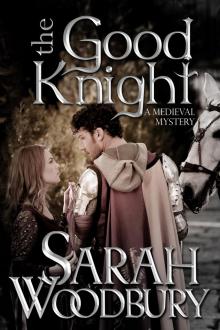 The Good Knight
The Good Knight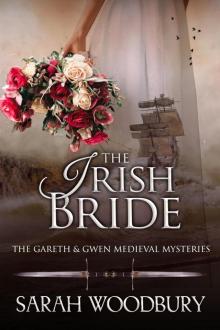 The Irish Bride
The Irish Bride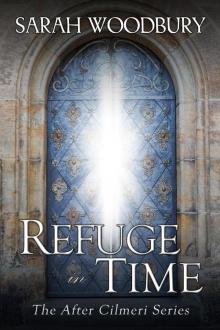 Refuge in Time
Refuge in Time Masters of Time
Masters of Time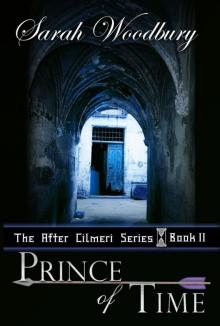 Prince of Time (Book Two in the After Cilmeri series)
Prince of Time (Book Two in the After Cilmeri series)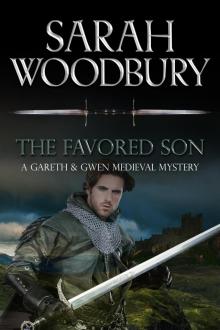 The Favored Son
The Favored Son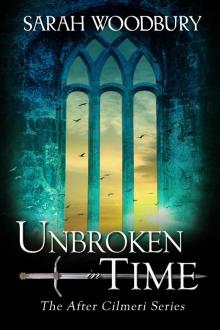 Unbroken in Time
Unbroken in Time![[The Lion of Wales 01.0] Cold My Heart Read online](http://i1.bookreadfree.com/i/03/22/the_lion_of_wales_01_0_cold_my_heart_preview.jpg) [The Lion of Wales 01.0] Cold My Heart
[The Lion of Wales 01.0] Cold My Heart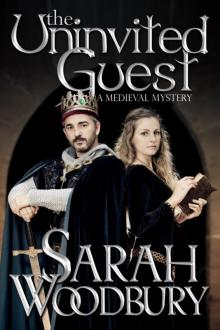 The Uninvited Guest
The Uninvited Guest The Pendragon's Blade (The Last Pendragon Saga Book 2)
The Pendragon's Blade (The Last Pendragon Saga Book 2)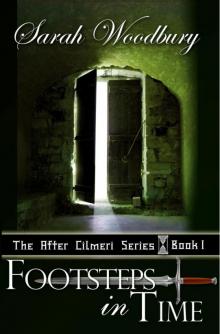 Footsteps in Time
Footsteps in Time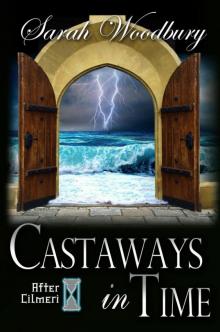 Castaways in Time (The After Cilmeri Series)
Castaways in Time (The After Cilmeri Series) Winds of Time
Winds of Time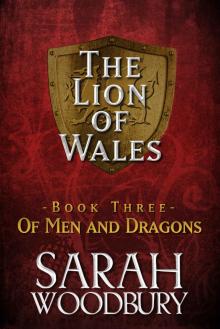 Of Men and Dragons (The Lion of Wales Book 3)
Of Men and Dragons (The Lion of Wales Book 3) Champions of Time
Champions of Time The Pendragon's Challenge (The Last Pendragon Saga Book 7)
The Pendragon's Challenge (The Last Pendragon Saga Book 7) Rise of the Pendragon (The Last Pendragon Saga Book 6)
Rise of the Pendragon (The Last Pendragon Saga Book 6)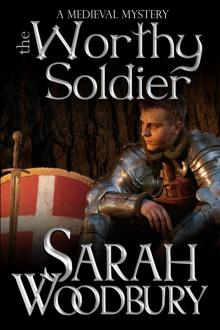 The Worthy Soldier
The Worthy Soldier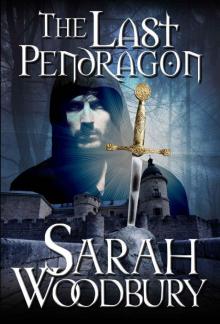 The Last Pendragon (The Last Pendragon Saga Book 1)
The Last Pendragon (The Last Pendragon Saga Book 1) The Fallen Princess
The Fallen Princess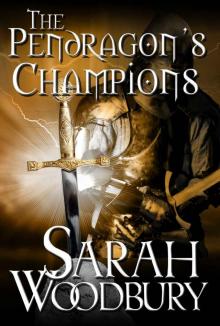 The Pendragon's Champions (The Last Pendragon Saga Book 5)
The Pendragon's Champions (The Last Pendragon Saga Book 5)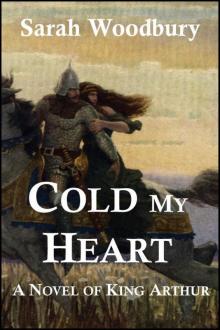 Cold My Heart: A Novel of King Arthur
Cold My Heart: A Novel of King Arthur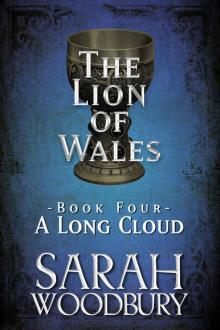 A Long Cloud (The Lion of Wales Book 4)
A Long Cloud (The Lion of Wales Book 4)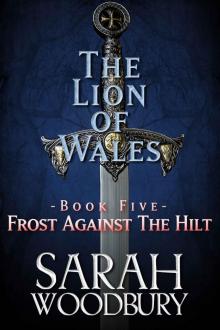 Frost Against the Hilt (The Lion of Wales Book 5)
Frost Against the Hilt (The Lion of Wales Book 5) Daughter of Time: A Time Travel Romance
Daughter of Time: A Time Travel Romance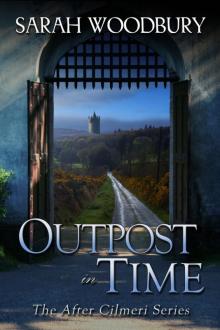 Outpost in Time
Outpost in Time Shades of Time kobo
Shades of Time kobo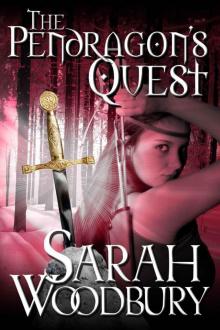 The Pendragon's Quest (The Last Pendragon Saga Book 4)
The Pendragon's Quest (The Last Pendragon Saga Book 4)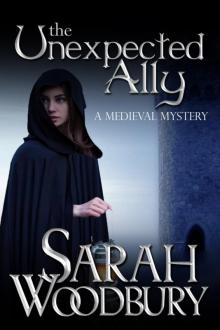 The Unexpected Ally
The Unexpected Ally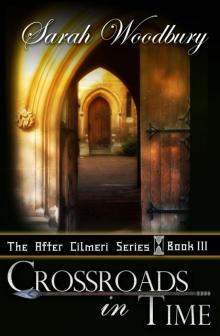 Crossroads in Time (The After Cilmeri Series)
Crossroads in Time (The After Cilmeri Series)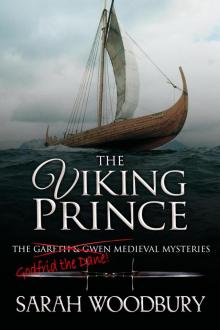 The Viking Prince
The Viking Prince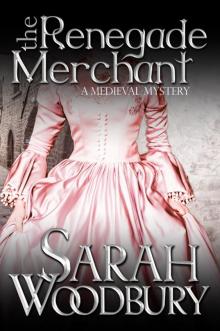 The Renegade Merchant
The Renegade Merchant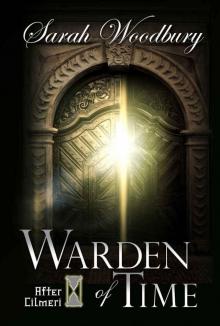 Warden of Time (The After Cilmeri Series Book 8)
Warden of Time (The After Cilmeri Series Book 8)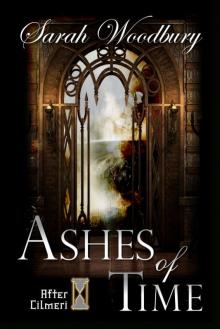 Ashes of Time (The After Cilmeri Series)
Ashes of Time (The After Cilmeri Series)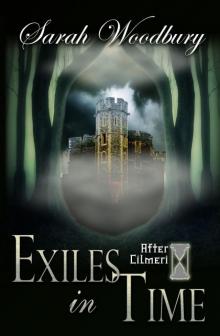 Exiles in Time (The After Cilmeri Series)
Exiles in Time (The After Cilmeri Series)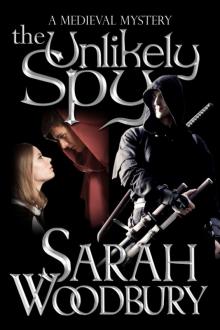 The Unlikely Spy
The Unlikely Spy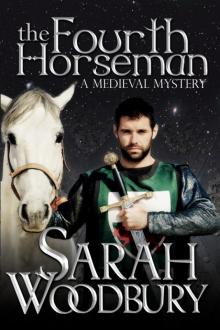 The Fourth Horseman
The Fourth Horseman The Oaken Door (The Lion of Wales Book 2)
The Oaken Door (The Lion of Wales Book 2) Song of the Pendragon (The Last Pendragon Saga Book 3)
Song of the Pendragon (The Last Pendragon Saga Book 3) Champions of Time (The After Cilmeri Series, #13)
Champions of Time (The After Cilmeri Series, #13)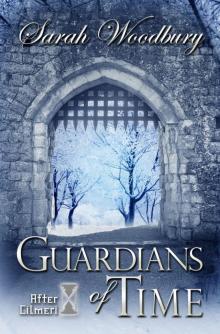 Guardians of Time
Guardians of Time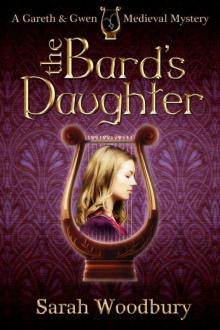 The Bard's Daughter (A Gareth and Gwen Medieval Mystery)
The Bard's Daughter (A Gareth and Gwen Medieval Mystery)